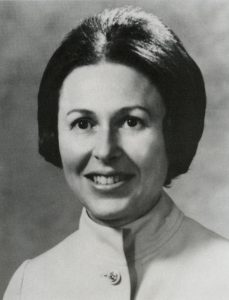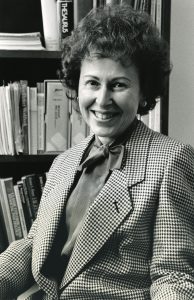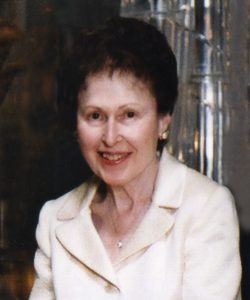Author Archives: tannerfoundation
The Lost Sources of a Science of Education
The Social Consequences Of Bad Research
The Social Consequences of Bad Research
Restructuring for an Interdisciplinary Curriculum
Margaret Thatcher: Iron Lady of Charter Schools
Sorry, President Obama, but High-Stakes Tests Can`t Cure Cancer
Race to the Top and Leave the Children Behind
Jean Piaget’s Debt to John Dewey
Biog
Daniel Tanner
Born Sept. 22, 1926, Manhattan, NYC
m. Laurel Jacobson, July 11, 1948 div. 1988

Professor Emeritus, Rutgers University, Graduate School of Education 1968-2010, where he established the doctoral program in Curriculum Studies.
Author of many books on education including Schools for Youth: Change and Challenge; Crusade for Democracy, and co-author with Laurel Tanner, History of the School Curriculum and Curriculum Development: Theory Into Practice, 4 editions. His writings have been translated into many languages.

Before joining Rutgers, served on the faculty of Purdue, Northwestern and City University of New York. He was awarded the Ph.D. from The Ohio State University in 1955 where he was named University Scholar. His earlier degrees were earned at Michigan State University. Has lectured at universities throughout the world including England, Germany, Czech Republic, People’s Republic of China, and Saudi Arabia. He is a former president of The John Dewey Society for the Study of Education and Culture, a Fellow of the American Association for the Advancement of Science and a Founding Fellow of the American Educational Research Association from which he was recipient of the Lifetime Advancement Award. He has served on several committees of the National Association of Secondary School Principals and The Association for Supervision and Curriculum Development.

Author of articles in the leading professional journals as well as The Atlantic, New York Times, Bulletin of the Atomic Scientists, and Education Week.
Is founding president of an educational foundation established in his name in 2010. The foundation has supported school projects engaging children and adolescents in hands-on learning experience. The Foundation has supported annual national conferences on education reform sponsored by the Bloustein School of Public Planning and Policy of Rutgers University , and has awarded research grants on school improvement, educational history, curriculum development, and medical education. As a popular critic of nationalizing reforms of U. S. schools legislated by both political parties, Tanner maintains that, from the time of the “crisis” of the Cold War to the current “crisis” of the alleged decline of U. S. hegemony over global economic markets, the public schools have been held scapegoat for the successive failures of government with the consequence that the schools have been forced to surrender democratic educational aims to narrow nationalistic aims. He draws a caricature of the national school-reform programs, including the high-stakes testing initiatives of Barack Obama’s “Race to the Top” and of George W. Bush’s “No Child Left Behind” taken together as “Race to the Top and Leave the Children Behind.”

Tanner contends that the putsch for early-childhood education stemming from Lyndon Johnson’s War on Poverty took a wrong turn from the start in seizing upon data going back to the 1920s declaring that 80 % of intelligence is developed by age 8. The consequence was that this claim became a doctrine with the conclusion that after age eight was too late. Hence both political parties ascribed to the doctrine that early-childhood education would be the “quick-fix” to close the widening gap in school achievement between children in poverty and middle-class children. Tanner maintains that the research on intelligence since the 1920s has revealed intelligence as a developmental process extending throughout the lifespan, while adolescence marks a critical stage for the development of hypothetical thinking for problem solving – the highest stage of intelligence for which there is no ceiling beyond creativity. But this development requires a rich and powerful school environment for ALL children and youth that reaches into the home. Further, Tanner points out that the 1920s was a time period when much of the research on intelligence was mechanistic and heavily based on eugenics, whereas the critical factor is environmental.
As with John Dewey, America’s greatest philosopher, Tanner believes that “No education – or anything else for that matter – is progressive unless it is making progress.”
Tanner’s comment on the election of Donald Trump: “I can’t wait to read his Farewell Address.” Tanner has been a member of the Democratic National Committee since 2005.
Laurel Tanner (1929-2013)
A Memorial Tribute
Laurel Tanner, Professor Emeritus, Temple University, and Affiliate Professor at the University of Washington College of Education, passed away in Seattle on October 20, 2013.
Laurel served as an elementary school teacher in Columbus, Ohio and San Francisco, and later as supervisor in the public schools of Milwaukee. She earned her bachelor’s and Master of Art’s degrees at Michigan State University in 1949 and 1953 respectively, and was awarded the doctorate in Curriculum Studies at Teachers College Columbia University in 1967. While working on her doctorate Laurel Tanner was on the faculty of Hunter College of the City University of New York (1964-1966). In 1969 she joined the faculty of the College of Education at Temple University, Philadelphia, until she became Professor Emeritus in 1993. From 1989 to 1996, Dr. Tanner also served as Professor in the College of Education at the University of Houston. During the 1974-1975 academic year, Dr. Tanner was Visiting University Professorial Scholar at the Institute of Education, University of London (England). This was followed by visiting appointments at Stanford University (1984-1985), San Francisco State University (1987-1988), the University of Chicago (1988-1989), and the University of Washington (2009-2013).

Laurel Tanner was author of many books, including Classroom Discipline for Effective Teaching and Learning (1978), followed by the Spanish translation edition in 1980; and Dewey’s Laboratory School: Lessons for Today (1997). She was co-author of Classroom Teaching and Learning: A Mental Health Approach (1975) with Henry Clay Lindgren; and with Daniel Tanner four successive editions of Curriculum Development: Theory Into Practice (2007), Supervision in Education: Problems and Practices (1987), and History of the School Curriculum (1990) followed by the Chinese translation edition in 1999. Laurel Tanner anticipated the problems of mental health in the classroom and school environment of high-stakes testing and external pressures. As with Dewey, she held that discipline must be seen not as a process of external imposition, but as a power of responsible self-direction in the context of the cooperative, democratic classroom and school. Curriculum Development: Theory Into Practice has remained in print continuously through successive editions spanning over 40 years.
With the endorsement of Ralph W. Tyler, Director Emeritus of the Institute for Advanced Study in the Social Sciences and Lawrence A. Cremin, President of Teachers College, Columbia University, Laurel Tanner founded the Society for the Study of Curriculum History in 1978 and served as the Society’s first president, 1978-1979. The society meets annually before the opening of the Annual Meetings of the American Educational Research Association. Laurel was President of the John Dewey Society for the term 2000-2001.
In 1992-1993 Laurel Tanner was awarded a research grant from the Spencer Foundation. Among her many honors and awards were the Distinguished Service Award of the John Dewey Society (1981); Research Excellence Award, University of Houston (1982); Outstanding Writing Award, American Association of Colleges of Teacher Education (1998); and Lifetime Achievement Award, American Educational Research Association, Curriculum Studies (Division B). Laurel Tanner served as a member of the Council of Directors of the Association for Supervision and Curriculum Development (1982-1984): member, Committee on the Role and Status of Women in Educational Research and Development, American Educational Research Association (1994-1997); and Factotum and chair, membership committee, Professors of Curriculum (1983-1984, 1994-1995).
From 1969 through 1974, Laurel Tanner was a contributing editor for Educational Leadership, the journal of the Association for Supervision and Curriculum Development. She was editor and chair for the 87th Yearbook of the National Society for the Study of Education, Part I, Critical Issues in Curriculum, 1988 in which she contributed the introductory chapter, Critical Issues in Historical Perspective. Several chapters from the 1988 Yearbook were selected for republication in the Society’s 98th Yearbook, Part II in commemoration of the Society’s Centennial Year.

Over her career, Laurel Tanner was a constant contributor of articles to the leading professional journals, and served in leadership roles in many of our professional societies.
Laurel Tanner believed that over the history of the curriculum field, a rich heritage of experimentalist paradigms have emerged from a profound knowledge base upon which to build a science of education. But she felt that there was much lost ground as the result of repetitive cycles of shifting and conflicting forces and movements external to the educational situation. Laurel Tanner believed in the idea of progress, and that progress is the result of problem solving for growth and renewal by focusing on possibilities, not limitations.

Laurel’s life and legacy for education
might best be summed up in the closing words of her last book,
Dewey’s Laboratory School, Lessons for Today:
“Perhaps the best part of the story is just beginning.”
